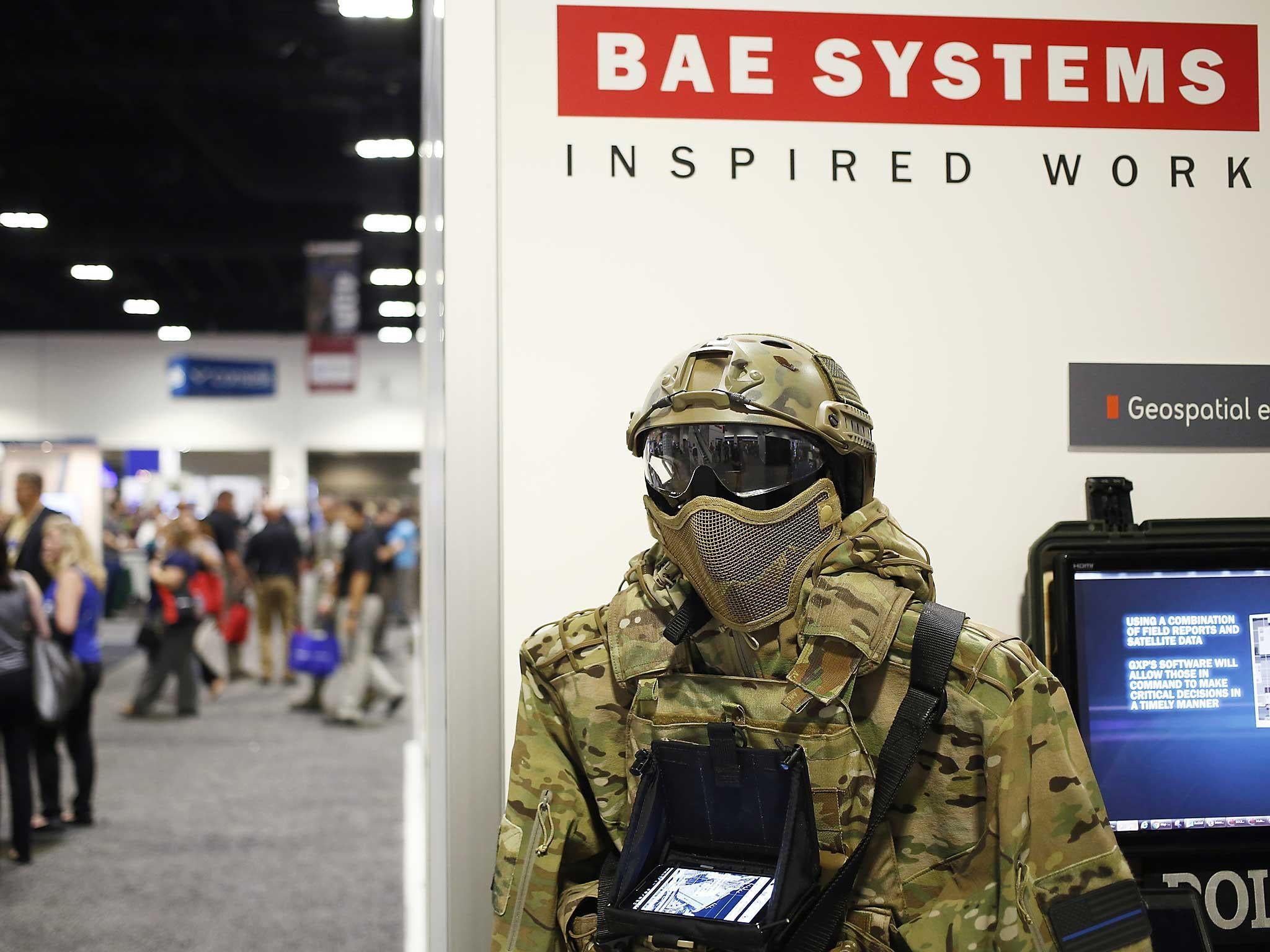BAE Systems announces it is cutting almost 2,000 jobs
Up to 750 jobs will be slashed at its Warton and Samlesbury plants in Lancashire and up to 400 people will be cut at its plant in Brough, East Yorkshire

Britain’s largest arms manufacturer has announced that it is slashing up to almost 2,000 jobs, largely as a result of a slowdown in orders for its Eurofighter Typhoon fighter jets, prompting fierce calls for the Government to step in.
BAE Systems, which currently employs around 34,600 people across the UK, said that the cuts would predominantly affect two of its plants in Lancashire.
“I recognise this will be difficult news for some of our employees and we are committed to do everything we can to support those affected,” said chief executive Charles Woodburn. He added, however, that the decision to slash staff was “necessary and the right thing to do”.
In a statement, the company said that the move would help “boost competitiveness, accelerate technology innovation and improve operational excellence from a more streamlined business”.
Up to 750 jobs will be slashed at BAE's Warton and Samlesbury plants in Lancashire and up to 400 people will be made redundant in Brough, East Yorkshire. Other reductions will be made across plants in Leeming, Portsmouth & Solent and across London and Guildford.
Speculation that the cuts would be announced already emerged on Monday, but Tuesday's figure is greater than many had anticipated.
For months the company has been grappling with a slowdown in orders for the Eurofighter Typhoons. Qatar last month agreed to buy 24 of the jets, but an expected order from Saudi Arabia failed to materialise and the Typhoon has reportedly won fewer orders so far in 2017 than a rival fighter jet built by France’s Dassault Aviation.
On Tuesday, BAE said the timing of future orders is always uncertain. To ensure production continuity and competitive costs between the completion of current contracts and anticipated new orders, it said that it plans to reduce the assembly rate of Typhoons, as well as rates of production of its Hawk aircraft.
It said that it expects to cut around 1,400 roles overall within the military air division, across five sites over the next three years. Around 375 roles will be cut in the maritime services business.
Anticipation of the sweeping cuts already on Monday prompted calls for the Government to step in, and on Tuesday unions ramped up their demands for the Westminster to do more to support the sector.
Unite the Union vowed to fight what it called the "devastatingly short-sighted" job losses.
“These planned job cuts will not only undermine Britain’s sovereign defence capability, but devastate communities across the UK who rely on these skilled jobs and the hope of a decent future they give to future generations,” assistant general secretary Steve Turner said.
“The UK Government must take back control of our nation’s defence and with it, play its part in supporting UK defence manufacturing jobs,” he added.
“Too much taxpayers' money earmarked for defence spending is going to factories overseas,” Mr Turner said.
GMB national officer Ross Murdoch said that the Government must “stop dithering if it wants to save the UK's highly skilled aerospace jobs”.
"The Prime Minister must forge trade deals with overseas partner countries, as well as delivering a cast-iron commitment now to build the next generation fighter planes,” he said.
"With the ever-increasing likelihood of failure to reach agreement on Brexit, which brings its own economic and employment uncertainty, UK manufacturing needs a strong government to fight to secure these jobs."
Shadow defence secretary Nia Griffith called the cuts “appalling news for BAE's workers and for communities across the UK”.
"It is time for the Government to address the clear uncertainty that is felt by the industry and come forward with an urgent plan to save these jobs,” she said.
A government spokesperson said that Westminster "stands ready to support those affected”.
"Our MoD spent £3.7bn with BAE last year, and we also continually bang the drum for our world-leading defence industry right across the globe, supporting companies like BAE in securing contracts for UK-made equipment,” the spokesperson added.
FTSE 100-listed BAE is among the world’s largest defence companies and employs over 82,000 people globally.
In August, the group reported a better than expected 11 per cent rise in half-year core profits to £945m and said it was on track to meet its full-year target.
At the time, Mr Woodburn, who took over as chief executive from Ian King in July, said that he planned to sharpen operations but saw no reason to change overall strategy of the company.
On Tuesday, the company said that trading in the most recent quarter had been in-line with expectations and that it continues to expect underlying earnings per share for 2017 to be 5 per cent to 10 per cent higher than full-year underlying earnings per share in 2016. It also said that it continues to expect a small reduction in net debt compared with last year.
BAE’s largest markets are Britain and the US. It also has substantial operations in Saudi Arabia, India and Australia.
Join our commenting forum
Join thought-provoking conversations, follow other Independent readers and see their replies
Comments